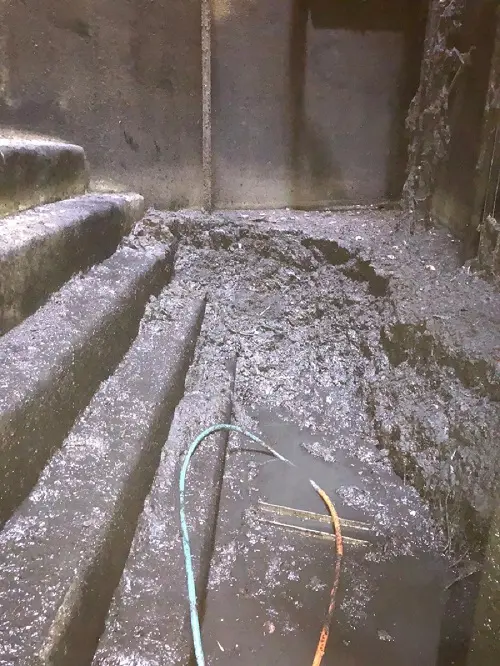A fatberg, which was almost 6 ft tall and weighed the same as three double-decker buses, has successfully been removed from wet well near the iconic Abbey Mills pumping station, east London.
The removal took several days to remove as it had built up 35 metres underground.
James O’Donoghue, pumping stations operations manager at Abbey Mills, said:
“It was an incredible feat to clear the fatberg, and involved people from all across Thames Water to plan and then execute its removal.
“It was predominantly made up of silt and rag – unflushable items such as wet wipes, tampons and condoms – and shows the everyday challenges we face in keeping our sewers flowing.
“A huge thank you and well done to everybody involved in the removal. We face this type of issue every day as we keep sewers flowing across London and the Thames Valley, and we’ve learnt a lot from this project.
“Now it’s been removed, we can install final drainage pumps to ensure Abbey Mills and the North London Flood relief can operate to its full potential.”
 It took 11 days and a team of 20 people to remove the fatberg. Due to the size and the complexity of reaching it, rigorous safety controls were in place to make sure staff were as safe as possible. The operation to unblock included rehearsals, upstream monitoring, special permits, and dry weather working to mitigate health and safety risks.
It took 11 days and a team of 20 people to remove the fatberg. Due to the size and the complexity of reaching it, rigorous safety controls were in place to make sure staff were as safe as possible. The operation to unblock included rehearsals, upstream monitoring, special permits, and dry weather working to mitigate health and safety risks.
The “fatberg” removal follows the Government’s UK-wide ban on the sale of wet wipes containing plastic. Wet wipes and sanitary products, along with fats, oils and greases, are the prime cause of fatbergs clogging up the country’s sewers. If fatbergs aren’t removed, they can lead to pollutions, toilets backing up and overflowing, and sewer collapses.



